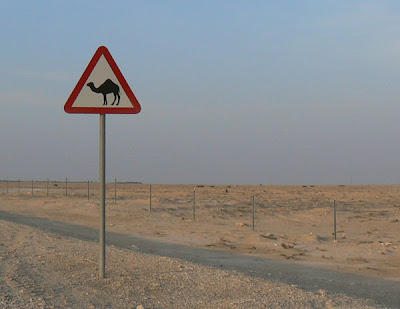Do women face sexism and discrimination in Qatar?
I've recently been working on a new page for the website,
Working Women in Qatar, and while I was doing it I decided to ask a few women if they felt they were at a disadvantage here.
The first lady I asked, who was an
Indonesian girl, worked as a secretary in a workshop in the Industrial area, and didn't feel she had received any discrimination based on sex.
Next I spoke to a business woman. Interestingly, she felt that while she had felt some sexism, it had all come from either Western expatriates ("who have been here too long") or from shop workers. Her feelings were echoed by a British teacher I spoke too, although she added that it was nothing she couldn't deal with.
I also spoke to an American-Arab. She felt that a much bigger problem than sexism was discrimination on the basis of nationality. Hence, with her American passport she would receive a much higher wage than an Arab or Indian with the same experience and qualifications doing the same job. This lead, she felt, to hidden resentment.
However, she did feel that there was some sexism, although it was subtle rather than blatent - a woman, for example, was less likely to be promoted than a man.
Incidentally, as we outline on our page on woman workers in Qatar, the equality of woman
when they are already working is protected by Qatar Labour Law i.e. women ought to have equal pay, training and promotion opportunities when doing the same job as a man.
Of course, to be allowed to work or even to drive, a woman needs the permission of her husband or, if still single, the male members of her family.
When at work, men and women are sometimes separated. For example, in clinics and hospitals there are separate sections for men and women. Nevertheless, Qatari men and women seem comfortable with dealing with people from the opposite sex - when they are foreigners. I have been in a meeting with Qatari women, however when a man has entered the atmosphere has suddenly changed, with both men and women appearing uncomfortable.
I've also heard from trainers that when classes of men and women have been merged, there has been considerable awkwardness.
"It's like teaching two classes," one trainer said, adding that the men, who were outnumbered by the women, appeared intimidated.
I actually asked some Qatari ladies whether they had experienced any difficult with men, but they said they didn't actually work face to face with men that much - it tended to be on the phone or through email. I mentioned that some Western friends had complained more of sexism from Western men, although I am not sure they completely understood.
"Maybe those men don't understand the culture here," one said. "You know, knocking on the door before entering and so on." (In Qatar it is normal for men to knock on the door of a woman's office and room and wait until it is open. This gives a chance for a women, should she wish, to cover her face.)
The final person I asked was a Japanese teacher. When I asked her if there was sexism in Qatar, she shook her head firmly.
"No," she said. "Quite the opposite. They [the men] treat you like royalty."
Note - it is perhaps wise, when talking about discrimination with locals in Qatar, to avoid the word sexism. If the person you are talking does not know the word there is a danger of a misunderstanding.Also see:
Qatar Visitor FriendsQatar JobsFind the best deal, compare prices and read what other travellers have to say about QatarTagsQatar Doha Middle East women















